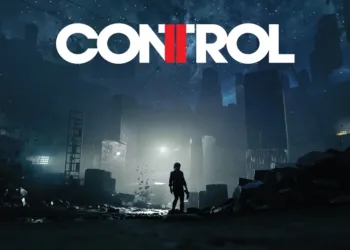For nearly three decades, the Resident Evil franchise has terrorized and captivated gamers worldwide, establishing itself as the undisputed king of survival horror gaming. What began as a simple zombie outbreak in a mysterious mansion has evolved into a complex universe filled with government conspiracies, bioweapons, and unforgettable characters who have become household names among gaming enthusiasts.
The series has weathered numerous transformations, from its classic fixed-camera origins to modern over-the-shoulder action sequences, yet one element has remained consistently powerful throughout its evolution: the compelling cast of characters that players have grown to love, fear, and admire.

These aren’t just digital avatars moving through scripted sequences; they’re carefully crafted personalities who have shaped gaming culture and influenced countless other titles in the horror genre. Each character brings their own unique blend of courage, vulnerability, determination, and sometimes terrifying ambition to the table, creating a rich tapestry of human drama set against the backdrop of apocalyptic scenarios. From rookie police officers thrust into nightmarish situations to seasoned agents battling global conspiracies, from mysterious femme fatales with hidden agendas to megalomaniacal villains seeking world domination, the Resident Evil universe has created a pantheon of characters that transcend their medium to become genuine pop culture icons.
Table of Contents
Resident Evil Ultimate Heroes: Main Protagonists Who Became Gaming Legends
Leon Scott Kennedy: The Rookie Who Became a Legend
Leon Scott Kennedy stands as perhaps the most beloved protagonist in the entire Resident Evil pantheon, embodying the perfect evolution from vulnerable newcomer to seasoned veteran. His journey began in Resident Evil 2, where players first encountered him as a fresh-faced police officer arriving for his first day of work in Raccoon City, only to find the entire metropolis overrun by zombies and other horrifying creatures. This initial portrayal established Leon as an everyman hero, someone ordinary thrust into extraordinary circumstances, making him immediately relatable to players who could imagine themselves in similar terrifying situations.

However, it was Resident Evil 4 that truly cemented Leon’s status as a gaming icon. The game transformed him from a somewhat naive rookie into a confident, quip-delivering agent capable of taking on entire armies of infected villagers and monsters. His character development felt natural and earned, showing the psychological and physical toll of surviving multiple bioweapon outbreaks while maintaining his fundamental humanity and determination to protect others. The game’s revolutionary over-the-shoulder camera perspective allowed players to experience Leon’s adventures more intimately than ever before, creating an unprecedented level of connection between character and player.
Leon’s appeal lies not just in his combat prowess or survival skills, but in his unwavering moral compass and dry sense of humor that helps him cope with impossible situations. His one-liners have become legendary among fans, delivering perfectly timed moments of levity that break the tension without undermining the horror atmosphere. Recent appearances in remakes and new entries have only strengthened his position as the franchise’s most recognizable face, with his rumored involvement in upcoming projects generating massive excitement among the fanbase.
Jill Valentine: The Master of Unlocking Hearts and Doors
Jill Valentine holds the distinction of being one of the original Resident Evil protagonists, appearing in the very first game that launched the franchise into gaming history. Her introduction as a Special Tactics and Rescue Service (S.T.A.R.S.) member immediately established her credentials as a capable and resourceful survivor, but it was her personality and determination that made her truly memorable. The character quickly became known for her problem-solving abilities, earning the playful nickname “master of unlocking” for her knack with lockpicks and puzzles, though this modest skill belied her true talents as a combat specialist and survivor.

Throughout her various appearances across multiple games, Jill has consistently demonstrated remarkable resilience and adaptability. Her starring role in Resident Evil 3 showcased her ability to carry an entire game as the sole protagonist, facing down the seemingly unstoppable Nemesis while navigating the chaotic final days of Raccoon City. This game highlighted her resourcefulness and determination, showing how she could maintain hope and focus even when facing overwhelming odds and relentless pursuit by an nearly indestructible bioweapon designed specifically to eliminate S.T.A.R.S. members.
What makes Jill particularly compelling is her evolution throughout the series, from the relatively straightforward heroic archetype of the early games to the more complex character seen in later entries. Her experiences with mind control and manipulation in Resident Evil 5 added layers of vulnerability and trauma to her character, while her appearances in spin-offs and side stories have shown different facets of her personality. She represents the heart of the franchise’s original vision while adapting to its modern iterations, making her a bridge between the old and new eras of Resident Evil storytelling.
Chris Redfield: From Rookie to Boulder-Punching Legend
Chris Redfield’s transformation throughout the Resident Evil series represents one of the most dramatic character evolutions in gaming history. Beginning as one of the original S.T.A.R.S. members in the first game, Chris started as a relatively normal police special forces operative thrown into an unprecedented situation involving zombies and other bioweapons. His early characterization focused on his loyalty to his team members, particularly his partnership with Jill Valentine, and his determination to uncover the truth behind the Umbrella Corporation’s sinister activities.

The most significant transformation in Chris’s character came with Resident Evil 5, where years of fighting bioweapons had transformed him from a standard police officer into a heavily muscled, almost superhuman agent capable of incredible physical feats. This change became legendary among fans, particularly the famous boulder-punching scene that turned Chris into a meme while simultaneously showcasing the series’ evolution toward more action-oriented gameplay. While some criticized this direction, others embraced it as a natural progression for a character who had survived multiple apocalyptic scenarios and dedicated his life to combating bioterrorism.
Chris’s recent appearances in the Ethan Winters saga have attempted to balance his evolved physical capabilities with deeper emotional complexity, showing him as a grizzled veteran haunted by the choices he’s had to make in his war against bioweapons. His appearances in Resident Evil 7 and 8 generated mixed reactions due to story decisions that seemed out of character, but they also demonstrated the franchise’s ongoing efforts to keep classic characters relevant in new storylines while maintaining their essential characteristics.
The Unforgettable Antagonists: Villains Who Defined Horror Gaming
Albert Wesker: The Master Manipulator Turned Superhuman Threat
Albert Wesker stands as one of gaming’s most memorable villains, evolving from a seemingly straightforward traitor to a complex megalomaniac with god-like aspirations. His initial appearance in the original Resident Evil positioned him as the classic inside man, a trusted authority figure whose betrayal of his S.T.A.R.S. teammates served as one of the game’s most shocking revelations. This betrayal established the template for the series’ ongoing themes of corporate conspiracy and the corruption of those in positions of trust and authority.

Wesker’s character development throughout the series showcased masterful villain writing, as each appearance revealed new layers of his master plan while maintaining his core characteristics of cold calculation and supreme confidence. His superhuman abilities, gained through viral enhancement, made him a physical threat unlike any other in the series, capable of moving at superhuman speeds and possessing strength that made him nearly invincible. These powers, combined with his strategic mind and resources, positioned him as the ultimate adversary for the franchise’s heroes.
The culmination of Wesker’s character arc in Resident Evil 5 represented both his greatest triumph as a villain and his most over-the-top incarnation. While some fans criticized the campy nature of his final appearance, others appreciated how it embraced the series’ B-movie roots while delivering spectacular action sequences. His influence on the series extends far beyond his actual appearances, as his machinations and the consequences of his actions continue to impact storylines even after his apparent death, cementing his status as the franchise’s greatest recurring antagonist.
The Modern Era: New Faces Who Revitalized the Franchise
Ethan Winters: The Everyman Hero Who Saved Resident Evil
Ethan Winters represents a successful return to the series’ roots while bringing fresh perspective to the franchise’s storytelling approach. His introduction in Resident Evil 7 marked a significant departure from the established roster of trained professionals and experienced survivors, instead presenting players with an ordinary civilian thrust into extraordinary circumstances. This choice proved brilliant, as it allowed both newcomers and veterans to experience genuine fear and vulnerability alongside the protagonist, recreating the sense of helplessness that made the original games so compelling.

The decision to present Ethan’s adventures from a first-person perspective created an unprecedented level of immersion in the series, making players feel more directly connected to the character’s experiences than ever before. His lack of combat training and special abilities made every encounter feel genuinely threatening, while his determination to save his wife provided clear emotional stakes that drove the narrative forward. The character’s relatability came from his very human reactions to impossible situations, including his famous tendency to make dry observations about the horrific things happening to him.
Ethan’s character arc across Resident Evil 7 and 8 showcased excellent character development, showing how ordinary people can find extraordinary strength when protecting those they love. His sacrifice in Village provided a emotionally satisfying conclusion to his story while establishing his daughter Rose as a potential future protagonist, demonstrating how the series can honor its past while building toward its future.
The Iconic Threats: Monsters That Became Gaming Legends
Mr. X: The Unstoppable Stalker Who Changed Horror Gaming Forever
Mr. X, also known as the T-00 Tyrant, revolutionized horror gaming through his introduction of the relentless stalker mechanic that has since become a staple of the genre. His appearance in Resident Evil 2, and later his enhanced role in the remake, created a new paradigm for horror game design by introducing an enemy that couldn’t be permanently defeated, only temporarily deterred. This design choice created sustained tension throughout the game, as players never knew when they might hear his distinctive footsteps approaching their location.

The psychological impact of Mr. X extends far beyond his actual combat encounters, as his presence transformed every moment of the game into a potential chase sequence. Players found themselves constantly listening for audio cues, planning escape routes, and making strategic decisions about when to engage or flee. This constant state of alertness created a uniquely stressful but engaging gameplay experience that many other horror games have since attempted to replicate.
The success of Mr. X’s design influenced not only future Resident Evil games but the entire horror gaming genre, with countless titles adopting similar stalker mechanics to create tension and unpredictability. His impact can be seen in everything from Alien: Isolation’s xenomorph to various slasher-inspired indie games, making him not just an iconic Resident Evil character but a foundational figure in modern horror game design.
Ada Wong: The Enigmatic Spy Who Captured Hearts and Secrets
Ada Wong represents one of gaming’s most intriguing supporting characters, embodying the classic femme fatale archetype while bringing enough depth and mystery to make her far more than a simple stereotype. Her introduction in Resident Evil 2 immediately established her as a wild card in the series’ narratives, someone whose true motivations and loyalties remained questionable even as she provided crucial assistance to other characters. This ambiguity has remained central to her character throughout multiple appearances, making every encounter with Ada a source of tension and uncertainty.

The evolution of Ada’s role throughout the series has been carefully managed to maintain her mysterious nature while gradually revealing more about her background and motivations. Her expanded presence in Resident Evil 4, including her own campaign in the Separate Ways expansion, allowed players to see events from her perspective while still maintaining the essential mystery surrounding her ultimate goals. This balance between revelation and concealment has kept her character fresh and engaging across multiple decades of appearances.
Ada’s appeal comes not just from her mysterious nature but from her competence and independence as a character who operates according to her own agenda rather than simply supporting or opposing the main protagonists. Her relationships with other characters, particularly Leon Kennedy, add emotional complexity to her appearances while never fully resolving the questions surrounding her true feelings and motivations, making every interaction charged with possibility and uncertainty.
Character Impact Analysis: How These Icons Shaped Gaming Culture
| Character | First Appearance | Key Games | Cultural Impact | Signature Traits |
|---|---|---|---|---|
| Leon Kennedy | RE2 (1998) | RE2, RE4, RE6 | Most recognizable RE protagonist, meme culture icon | Dry humor, survival skills, blonde hair |
| Jill Valentine | RE1 (1996) | RE1, RE3, RE5 | Original female gaming hero, “master of unlocking” | Resourcefulness, lockpicking, S.T.A.R.S. training |
| Chris Redfield | RE1 (1996) | RE1, RE5, RE6, RE7, RE8 | Boulder-punching meme, action hero evolution | Physical strength, loyalty, veteran experience |
| Albert Wesker | RE1 (1996) | RE1, RE4, RE5 | Iconic gaming villain, corporate conspiracy | Superhuman abilities, sunglasses, cold calculation |
| Ethan Winters | RE7 (2017) | RE7, RE8 | Franchise revival, everyman hero | First-person perspective, ordinary background |
| Mr. X | RE2 (1998) | RE2, RE2 Remake | Stalker mechanic pioneer, horror game influence | Relentless pursuit, intimidating presence |
| Ada Wong | RE2 (1998) | RE2, RE4, RE6 | Femme fatale archetype, mystery character | Espionage skills, red dress, ambiguous motives |
The Legacy Continues: Why These Characters Remain Relevant
The enduring popularity of these Resident Evil characters stems from their ability to evolve with the franchise while maintaining their core identities. Each character represents different aspects of the human experience when faced with impossible circumstances, from Leon’s humor in the face of horror to Jill’s determination against overwhelming odds. Their stories have been told across multiple decades and gaming generations, allowing them to grow with their audience while attracting new fans who discover them through remakes and new releases.
The success of recent remakes has demonstrated that these characters possess timeless appeal that transcends technological limitations or changing gaming trends. Modern audiences have embraced updated versions of classic characters just as enthusiastically as original fans, proving that strong character design and compelling personalities can overcome any technical or stylistic barriers. This versatility has allowed the Resident Evil franchise to maintain its relevance in an increasingly crowded gaming market.
Looking toward the future, these characters continue to influence new entries in the series and inspire similar character creation in other games. Their impact extends beyond the Resident Evil franchise itself, having established templates and expectations for horror game protagonists and antagonists that continue to shape the genre today.
Conclusion: The Immortal Legacy of Resident Evil’s Greatest Characters
The most iconic Resident Evil characters have achieved something rare in gaming: they’ve transcended their medium to become genuine cultural icons recognized even by those who don’t play video games. From Leon Kennedy’s evolution from rookie cop to legendary agent, to Albert Wesker’s transformation from trusted authority figure to megalomaniacal villain, these characters have provided the emotional foundation that has allowed the Resident Evil franchise to endure for nearly three decades.
Their influence extends far beyond their original games, inspiring countless other creators and establishing templates for character development that continue to be used throughout the gaming industry. As the franchise continues to evolve with new technologies and storytelling approaches, these legendary characters remain the constant thread connecting past, present, and future entries in the series. Whether facing classic zombies in remade scenarios or confronting new threats in original storylines, these icons of survival horror gaming continue to captivate audiences and define what it means to be a hero in the face of impossible odds.
Frequently Asked Questions
Who is the most popular Resident Evil character of all time?
Leon Kennedy is widely considered the most popular Resident Evil character, thanks to his starring role in the beloved Resident Evil 4 and his appearances in multiple other games. His combination of competence, humor, and character development has made him the unofficial face of the franchise, with his appearances in upcoming games generating significant fan excitement.
What makes these Resident Evil characters so memorable compared to other gaming protagonists?
Resident Evil characters stand out due to their realistic human reactions to extraordinary circumstances, well-developed personalities that evolve across multiple games, and the perfect balance between vulnerability and competence. Unlike many action game heroes, these characters feel genuinely human, making their survival achievements more impressive and their struggles more relatable to players.








